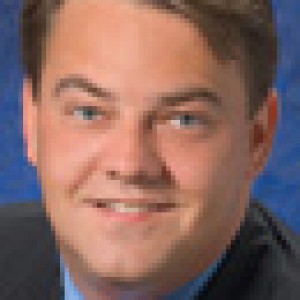Spotlight on Leaders and Trends
Interviews
- Bradley Alder
- Ali Saeed Bin Harmal Al Dhaheri
- Sergey Alexeev
- Sandy Angus
- Albert Aoun
- Marcus Bergstrom
- Stephen Brooks
- Stanley Chu
- Juan Pablo De Vera
- Michael Duck
- Simon Foster
- Renaud Hamaide
- Glenn Hansen
- Peter Neven
- Armando Arruda Pereira de Campos Mello
- Joseph V. Popolo
- Ravinder Sethi
- Lew Shomer
- Dan Spigner
- Amer N. Tabbah
- Yoshichika Terasawa
- Krister Ungerboeck
- Anbu Varathan
- Paul Woodward

Krister Ungerboeck
Interview by Barry Siskind on 16 May 2013
Krister Ungerboeck learned computer programming at the age of twelve and has never lost his passion for tackling tough issues. Today he heads US based USI Ungerboeck Software, a global leader in conference and event management software. Between running USI Ungerboeck offices in Asia, Germany, France and Australia, entertaining friends, travelling with his wife Whitney and raising two children, he found time to share with us his remarkable story.
Barry: You began learning computer programming at the tender age of twelve. What excited you about programming?
Krister: I learned a language called RPG which is a very difficult language compared to the ones in use today. I guess I liked the challenge. From an early age, I enjoyed creatively figuring out how to design a solution to a software problem and I still enjoy doing this today.
Barry: Who were your early teachers and what lessons did they leave with you?
Krister: My mother was most influential on the technology side. She’s retired now, but she was a brilliant system architect. Back in the1990s, she was the architect behind our application. She taught me how to develop business applications from a very young age as well as how to break complex problems into solvable chunks.
Barry: It’s unusual for someone to find a passion at an early age and stick with it throughout his life. Did your interests ever wane where you felt the need to go in another direction?
Krister: No. In addition to always loving technology, I knew that I wanted to be in business.
Barry: At the age of fourteen you read your first business book. Do you remember its title and the reason this book had an impact on you?
Krister: It was “A Passion for Excellence” by Tom Peters. I remember it was well over 600 pages and I read it from cover to cover.
Barry: Since then, you have become a voracious reader of business books. Which business book has had the most impact on your life?
Krister: Stephen Covey’s “7 Habits of Highly Effective People”. It was the book that inspired me to write my personal mission statement when I was 19.
Barry: What did you write?
Krister: My lifetime goal is to build a 1 billion dollar company. And I’ve been methodically working on turning that from a vision into reality ever since.
Barry: What business book would you recommend as a “must read?”
Krister: It really depends on the topic. One book that was a turning point for me in my leadership journey was “The Servant” by James Hunter. Admittedly, 15 years ago, I was pretty arrogant. Being a leader was mostly about me and fueling my ego by trying to prove to people that I was the smartest person in the room. It’s been a long road and I’ve changed a lot in 15 years.
Barry: What are you reading now?
Krister: I’m working through the Xenophobe’s Guide series. It’s a series of very short, humorous books about the stereotypical personalities of most cultures in the world. There’s one for nearly every major culture. These books are probably the fastest and most enjoyable way to become more culturally aware.
Barry: At the age of 20 you were hired by US based consulting firm Booz-Allen-Hamilton into a position that is usually granted to MBA graduates with five years of experience under their belts. Did you ever consider continuing your education rather than jumping into this industry?
Krister: I did pursue my MBA but I quit the program to start our business in Europe. The company needed me at that time to spearhead our international expansion and it would not wait. Today, over fifty percent of Ungerboeck’s business comes from outside the US, so looking back, I feel that it was the right decision. Living in France and Germany for 6 years was probably one of the best experiences of my life. I learned to speak French and German. Most of our American competitors are afraid of international business. We thrive on it.
Barry: Your bio states that you are a “hands-on leader”. Can you describe what that entails and why it is important for you and your organization?
Krister: My job as CEO is taking care of the big picture… and the little details … and to delegate the middle. I’m happy to roll up my shirtsleeves, dig in and get my hands dirty. I like working alongside our people to make great things happen. There are no tasks that are “below my pay grade”. I expect the same of all of our managers.
Barry: Can you please describe the “Pareto-Principle” and why it is something that you adhere to?
Krister: The Pareto Principle is more commonly referred to as the 80/20 rule, where 20 percent of the work yields 80% of the benefit. Like most things, this is easier said than done. What differentiates great organizations from merely good ones is having a keen sense for which is the 20% that yields the biggest result.
Barry: With your background and education you could have focused on any industry. What was it about the events and exhibition industry that caught your attention?
Krister: This is a fun industry. The people are enjoyable to work with and I like the international aspect.
Barry: What did you see lacking in the industry that you felt you could fix or improve?
Krister: One of our early customers said it best. He said, “The technology revolution of the 1980’s seemingly bypassed the events industry.”
There is so much opportunity for improvement in this industry. Most of the technology tools for the events industry are still “shiny objects” — essentially toys — with little substance behind them. Our approach is in developing software that is about “substance first with a splash of style” rather than vice versa. This is much needed in the events business.
Barry: Do organizers use event management software as effectively as they could?
Krister: No. Most event organizers are still attempting to cobble together a mix of software packages that weren’t built for managing events along with spreadsheets and custom built databases. It’s an extremely costly mess — and we’ve made it our mission to clean it up.
Barry: What do you see as the biggest inhibitor to adapting to new technologies in this industry?
Krister: Overcoming the “sunk cost” mentality. Stated simply, the sunk cost mentality is when you spend lots of money on something that’s not working, but you tell yourself you have spent so much money already, you have to wait until you get value out of it.
Barry: How would you like to see the stakeholders to the exhibition industry use event management software?
Krister: We need a more holistic approach. Event management software cannot be looked at in a vacuum. You need to look at sales, customer relationship management, exhibition management, your exhibition web sites, and accounting as one comprehensive process. This is a single ecosystem. A disjointed perspective is what is causing organizers to waste hundreds of thousands of dollars (and, for the largest organizers, millions of dollars) on 3-8 separate software investments and custom software projects that should be consolidated into one.
Barry: As event management software becomes more sophisticated, the amount of data generated grows. How can the various stakeholders (organizers, facilities, suppliers, exhibitors, sponsors and visitors) use this data better?
Krister: This is actually a moot point. Until all of the data is in one database, it’s an academic issue to talk about what you can do with it. In the early 1900s, there was a psychologist named Abraham Maslow who created Maslow’s hierarchy of needs. First you need food, then shelter, then love, et cetera. When it comes to systems, there is also a hierarchy of needs. First you need good systems to manage the individual functional needs of each department. The next level is to have all of the data in one database. Only when the data is in one database can you consider how you use it.
Barry: Your company has averaged an annual compound growth rate of 20%. What are you doing right?
Krister: I believe that exceptional people like to work with exceptional people. When you assemble a team of great people, it’s only a matter of time before great things happen. Add to this a micro-focus and a long term dedication to a singular goal. We are able to build software that is competitive with billion dollar software companies like SAP, salesforce.com, and Microsoft because we have exceptional people who are focused on solving the problems of the events business. The founder of Twitter, Biz Stone, once said, “Timing, perseverance, and ten years of trying will eventually make you an overnight success.”
Barry: What are the biggest challenges the exhibition and event industry face in the near future?
Krister: I think that exhibitions have become too complex and costly for exhibitors. The time required by marketing departments to organize their participation in exhibitions can be more costly than some other marketing channels. Chief Marketing Officers who are increasingly looking at ways to save money and are noticing that the logistics of exhibitions take a lot of time and energy, might ask themselves what they need to generate in sales in order to make this marketing channel viable over other marketing channels that are easier to use.
Barry: What would you say to those organizers who have not adapted to new technologies?
Krister: It’s okay to be a fast follower. One of the advantages of being a fast follower is that you can often leapfrog the early adopters at dramatically lower cost. There’s an old saying in technology, “You can tell the technology pioneers because they are the ones with the arrows in their back.” Being a fast follower is actually a better approach. Compared to other technology companies, I would consider Ungerboeck a fast follower. We have been very good at not only making the right technology choices — but, equally important, picking the right time to jump in with both feet. Mobile apps are a great example. Lots of companies wasted a lot of money on building native apps. Now, with HTML5, mobile apps can be built at a fraction of what they cost four years ago. The early adopters are saddled with highly paid experts in outdated mobile development technologies.
Barry: What’s the next big software development for the exhibition and events industry?
Krister: Stay tuned.

